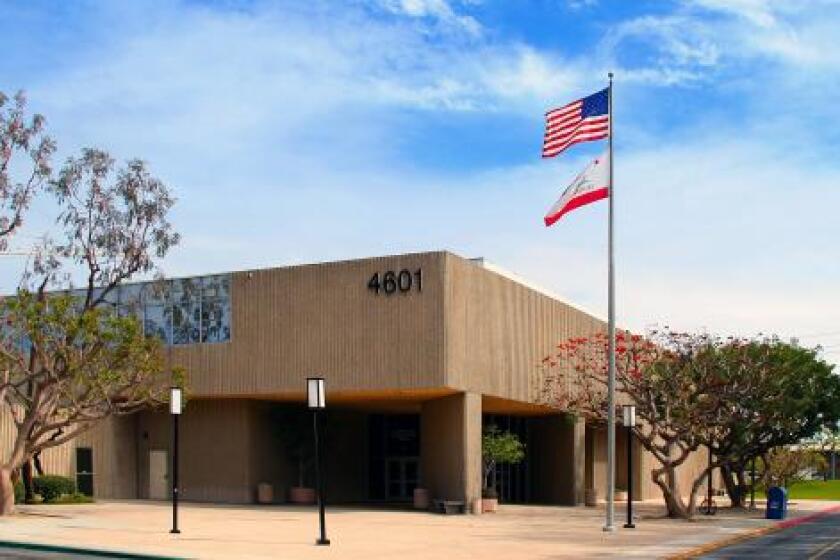ON THE TOWN:Before flying, a trip to Ground Zero
- Share via
“Change your flight,” she demanded.
He could, of course, but not without a price. The small cost would be the nuisance to his travel assistant. The larger cost was altering his routine because of a terrorist attack.
He was determined, as were most Americans, to show the world that Sept. 11 was not an open wound but merely a scratch, and he would fly home on Sept. 11, 2006.
“I’m not going to change the flight,” he replied. “The more I think about it, the more I believe it will be the safest day of the year to fly.”
She let it go. He almost wished she hadn’t because it deprived him of the best excuse to back out.
“She insisted,” he could tell friends.
She had given him permission to back down honorably and then had taken it away when she did not press the point.
On the morning of his Sept. 11 flight, he went to Ground Zero.
He saw thousands of people, some of them taking extra time off work or not at work at all. He saw tourists, unsure of exactly what they were looking at, taking pictures of the pit, trying to preserve memories with disposable cameras.
He saw a contingent of British police marching in perfect British order out of the hole to the applause of hundreds New Yorkers lined up to cheer them on the east side of the hole.
He saw flowers shoved into the holes of the fence on the south side of the memorial, notes written by strangers taped to anything that would hold them, and media gangs all looking for “the shot” or “the bite” that would separate them from the pack of colleagues looking for the same thing.
In the end, their broadcasts would be as indistinguishable as their daily reports; change the logo and the viewer would not know which station was broadcasting.
He saw the opportunistic activists, unable to understand that this was a day of mourning, not a chance to tell a crowd about a favorite cause.
It was what he did not see that affected him.
Passing once again by the south fence, he heard the woman’s voice reading the names of the dead, about a dozen or so. The last name was that of her then-husband, a firefighter who was one of the first on the scene and who tried to rescue strangers from a fate from which he himself would not escape.
Then another woman, another clutch of names and another hero.
They loved these men so much. They loved them for more than the reasons for which they gave their lives: their unflinching heroism, their duty and their honor. They loved them because they were the best husbands and wives and mothers and fathers ever born, and the widows and widowers would make sure that the very small children they left behind would know all that.
A husband and a father, he felt himself starting to choke up — just a little, but choking nonetheless.
“Leave,” he thought, and so he did.
At a coffee house a few blocks away, he called his wife 3,000 miles away and spent most of the first few minutes on the phone unable to talk.
“What is it?” she asked.
“I, just, came, from, Ground, Zero,” he finally managed.
“Oh, no,” she said.
He had an appointment at 1 p.m. to meet his nephew at Union Square, which left him about an hour.
He would spend that hour strolling up Broadway to the square, stopping to go into stores to bring back something for his wife, but he bought nothing.
He had not seen his nephew in 11 years. He knew that he was living in Russia and teaching but not much more than that.
They spent the lunch talking politics and life. Thanks to his morning, he was on the alert for any opportunity to tell his nephew how short and precious life is and that any chance to take meaning over money must be taken.
Such a conversation was not practical for a young man. His nephew, like so many people his age and before him, was still trying to discover “it,” that one inspiration, career or calling that would provide all the answers and clear up all the mystery.
In time, he was certain, his nephew would know exactly what to do.
In time, he would be back to his routine — to deadlines and shuttling and challenges and opportunities.
But his morning of Sept. 11, 2006, the fifth anniversary of the attack that created Ground Zero, would become another in a series of checkpoints in his life, one that made him glad he had not changed his flight.
All the latest on Orange County from Orange County.
Get our free TimesOC newsletter.
You may occasionally receive promotional content from the Daily Pilot.



